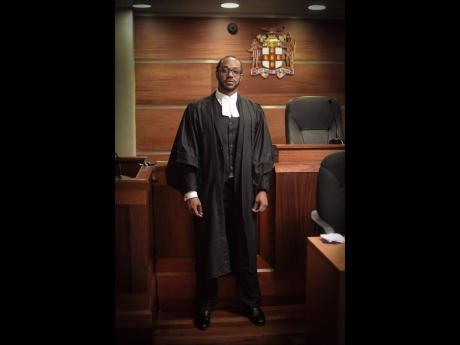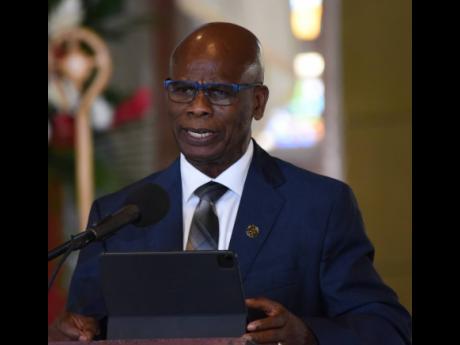Buchanan appointed JP despite concerns about convictions
Isat Buchanan, the attorney who has two convictions for drug-related crimes, was appointed as a justice of the peace (JP) by Governor General Sir Patrick Allen, court documents have revealed.
The appointment is dated May 29, 2019, according to the documents seen by The Sunday Gleaner.
But, according to Kingston Custos Steadman Fuller, Buchanan was never administered the oath of office and his seal was withheld amid concerns that the appointment could bring the office of JP “into disrepute”.
The court documents form part of an ongoing lawsuit Buchanan filed in 2019 against Fuller and Justice Minister Delroy Chuck to force the completion of his appointment by administering the oath of office and turn over his seal.
“Notwithstanding the Governor General’s commission, Mr Buchanan is yet to take the oath of office or to be issued with a justice of the peace seal,” Fuller acknowledged in his affidavit.
“Mr Buchanan has not acted in the capacity as a justice of the peace up to the date of this affidavit,” he confirmed.
However, a document with Fuller’s signature, which was attached to his affidavit, indicated that on June 2, 2019, he administered the oath of allegiance and the oath of office to Buchanan, who also signed the roll of JPs for Kingston.
Before he was allowed to practise law in Jamaica, Buchanan was convicted in Jamaica in 1997 for possession of, dealing in and taking steps to export cocaine. Three years later, he was convicted in the United States for conspiracy to import cocaine and given a ten-year prison sentence.
Despite this, he checked the ‘no’ box on the JP application form where it asked ‘Have you ever been found guilty of a criminal offence?’, according to the court documents, copies of which were obtained by The Sunday Gleaner.
Fuller, in his affidavit that was filed in response to the lawsuit, expressed concerns that Buchanan’s appointment as a JP “will bring the said office into disrepute and cause the office to lose the trust and confidence of the public, which is so essential to its proper functioning”.
“If Mr Buchanan should assume the office of justice of the peace, there would be no rational basis to deny persons similarly convicted of serious criminal offences from also being allowed to assume the office,” he opined.
“Similarly, persons who apply to be appointed justices of the peace and who are either dishonest or untruthful in completing their application forms would also feel entitled to be appointed a justice of the peace.”
NO TRUST AND CONFIDENCE
Further, Fuller posited the view that the attorney, in his capacity as a JP, would not have the trust and confidence of the police and other lay magistrates.
“A justice of the peace often works closely with the police, the lay magistracy and the justice system as a whole. I do not believe that he would be an effective justice of the peace without the trust and confidence of key sectors of the justice system,” he predicted.
The custos of Kingston disclosed that he was first alerted to Buchanan’s convictions by another JP and a senior police officer while the attorney was going through his training.
He said this was what caused him to review Buchanan’s JP application form when the misrepresentation was discovered.
Fuller said he took the application form to the JP Advisory Committee, which took the view Buchanan was not suitable to be commissioned as a JP.
This decision, he explained, was based largely on the fact that members of the committee took the position that the attorney’s failure to disclose his convictions made it impossible for them to form the view that “at the time”, he was “of unquestionable integrity”.
Fuller said during a meeting on May 21, 2019, Buchanan admitted to the convictions, but explained that he thought that they were not relevant since, in his view, the offences had been expunged.
The Supreme Court, in a recent decision, refused an application by Minister Chuck to be removed from the case.


